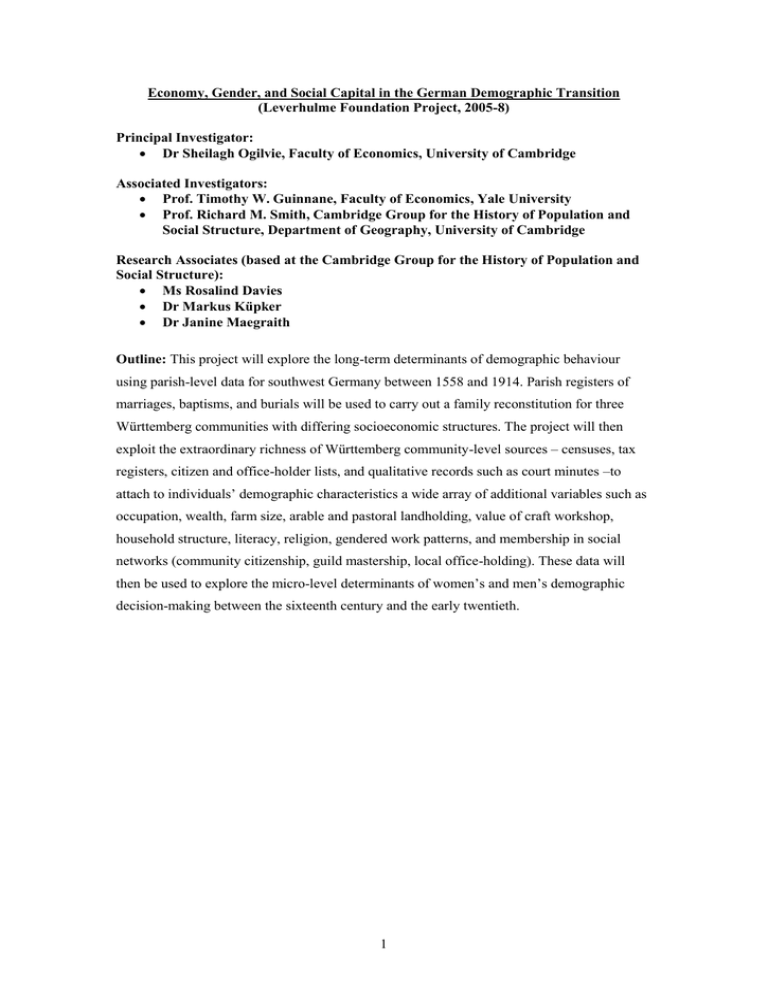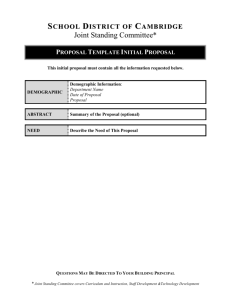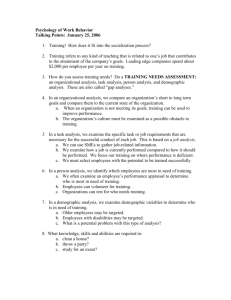Economy, Gender, and Social Capital in the German Demographic Transition
advertisement

Economy, Gender, and Social Capital in the German Demographic Transition (Leverhulme Foundation Project, 2005-8) Principal Investigator: Dr Sheilagh Ogilvie, Faculty of Economics, University of Cambridge Associated Investigators: Prof. Timothy W. Guinnane, Faculty of Economics, Yale University Prof. Richard M. Smith, Cambridge Group for the History of Population and Social Structure, Department of Geography, University of Cambridge Research Associates (based at the Cambridge Group for the History of Population and Social Structure): Ms Rosalind Davies Dr Markus Küpker Dr Janine Maegraith Outline: This project will explore the long-term determinants of demographic behaviour using parish-level data for southwest Germany between 1558 and 1914. Parish registers of marriages, baptisms, and burials will be used to carry out a family reconstitution for three Württemberg communities with differing socioeconomic structures. The project will then exploit the extraordinary richness of Württemberg community-level sources – censuses, tax registers, citizen and office-holder lists, and qualitative records such as court minutes –to attach to individuals’ demographic characteristics a wide array of additional variables such as occupation, wealth, farm size, arable and pastoral landholding, value of craft workshop, household structure, literacy, religion, gendered work patterns, and membership in social networks (community citizenship, guild mastership, local office-holding). These data will then be used to explore the micro-level determinants of women’s and men’s demographic decision-making between the sixteenth century and the early twentieth. 1

